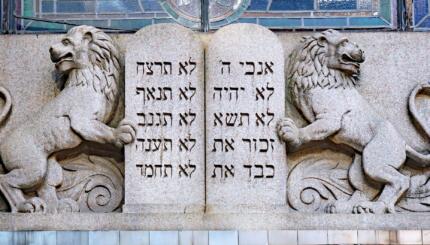David Ben Gurion was not only an ideologue; he was also a statesman and nation-builder. Ben Gurion molded the image of the nascent state with a forcefulness unmatched by any other Israeli leader.
Even before the creation of the state of Israel, through the 1920s and 1930s, Ben Gurion held the reigns of power in the Yishuv (the central authority of early Zionist settlement in Palestine) through his central roles in the Histadrut (the labor union), the World Zionist Organization, and the Jewish Agency. He stood as the head of the Zionist labor movement–the dominant political, social, and cultural stream from before statehood until 1977–and served as Israel’s first prime minister.
Shifting Politics
Throughout the long period that Ben Gurion stood in the wheelhouse of the Zionist ship, his tactics and strategy vis-à-vis the Arab question veered according to the shifting political waters. However, several key principles guided his strategy for the nation-in-the-making.
 The scholar Yosef Heller aptly summarizes Ben Gurion’s ideological constants in the following points (“The Positions of Ben Gurion, Weizman, & Jabotinsky on the Arab Question,” Shapira, Reinharz, & Harris, eds. The Age of Zionism, 2000, p. 213):
The scholar Yosef Heller aptly summarizes Ben Gurion’s ideological constants in the following points (“The Positions of Ben Gurion, Weizman, & Jabotinsky on the Arab Question,” Shapira, Reinharz, & Harris, eds. The Age of Zionism, 2000, p. 213):
With your help, My Jewish Learning can provide endless opportunities for learning, connection and discovery.
1. The Arabs may possess rights of residence, but they do not possess rights of collective ownership over the Land of Israel.
2. Jewish settlement and immigration do nothing to injure or impinge on the interests and status of the non-Jewish residents of the country.
3. The Arabs of the Land of Israel are a small part of the larger Arab nation, and Palestine is but a small holding within the vast Arab world. The Jewish people have no other place that can serve as a platform for national independence. Arab nationalist aspirations can be fulfilled beyond the borders of Palestine.
4. All Zionist policy depends on the “meticulous protection of the civil, political, and the national rights of the Arabs living in the Land of Israel.”
Ben Gurion’s position, like many others in the Zionist movement, was a position fraught with tensions. Anita Shapira describes Ben Gurion’s position in 1936 on the eve of the outbreak of the Arab Revolt:
“The man who had refused in 1924 to deal with the Arab question in its political aspects changed in the early 1930’s into a great believer in the possibility of reaching an accord with the Arabs. Now he altered his views once again. He had come to the conclusion that any agreement with the Arabs was dependent on reaching a prior understanding with the British; and such understanding on the part of Whitehall would not be forthcoming until Jews constituted a major force in Palestine” (Shapira, Land & Power, 1992, p .211).
Urgent Need for Statehood
Unlike the more militant Zev Jabotinsky, Ben Gurion’s conception of Jewish force was broad based. He argued that the security of Jewish life in the Land of Israel would depend on its constructive virtues: immigration, settlement, and the development of technology and culture. Ben Gurion was not a pacifist, but like many of his labor Zionist comrades, he saw the military as a tool, and unlike Jabotinsky’s Revisionist Zionists, not a value in and of itself.
For Ben Gurion, the creation of a Jewish state in some part of British Mandate Palestine was urgent, especially given the rise of European fascism in the years preceding World War II. Already in 1937, in response to the British Peel Commission, Ben Gurion supported the partition of Mandate Palestine west of the Jordan River into two states–a Jewish and an Arab state.
The impact of the Holocaust and the incremental emergence of a distinct Palestinian national movement led Ben Gurion to support the 1947 United Nations proposal to partition the Land of Israel, which included the internationalization of Jerusalem. Arab political leaders both in and outside of Palestine rejected a two-state solution both in 1937 and in 1947.
Above all else, Ben Gurion was driven by his realization that the survival of a Jewish state depended upon territorial borders that maximized the percentage of Jews. Ben Gurion’s concern over the demographic equation was based on his reading of the regional arena, in which the Jewish state would always remain a minority in a wider Arab region.
Ben Gurion’s readiness to accept partition as a less-than-perfect solution to Jewish-Arab relations was rooted in the idea that the survival of the Jewish people depends on the establishment and secure development of a majority-Jewish state in some part of the land of Israel.
In 1946, speaking to the Anglo-American Committee, Ben Gurion said, “But there is no counsel of perfection in this world, and there is no absolute justice in this world. What you are trying to perform, and what we are all trying to do in our small way, is rough human justice.”


